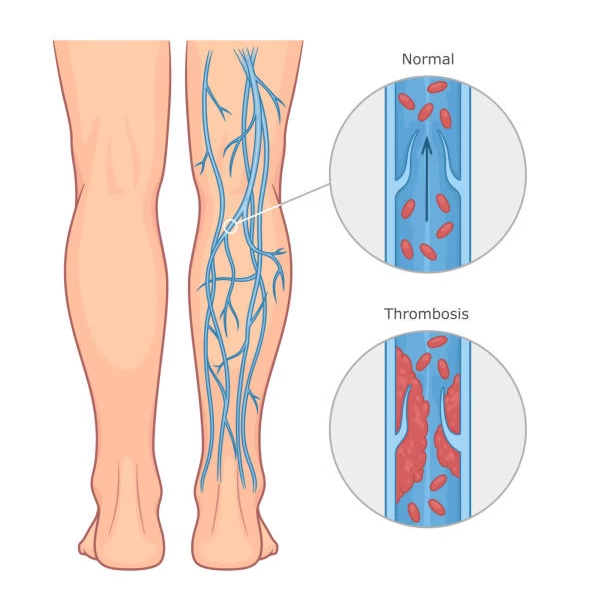How to Manage PCOS-Related Fatigue, Brain Fog, and Energy Dips During the Workday
Polycystic Ovary Syndrome (PCOS) affects millions of women worldwide, often presenting a range of frustrating symptoms that impact daily life. Among these, fatigue, brain fog, and energy dips stand out as particularly disruptive, especially during the workday when focus and productivity are essential. While many focus on PCOS causes, ovulation irregularities, and strategies for getting pregnant with irregular periods, managing these day-to-day symptoms is just as critical for well-being. In this post, we’ll explore actionable tips, including the role of phytotherapy, to help you navigate your workday with more clarity and energy.
Understanding PCOS-Related Fatigue and Brain Fog
PCOS is a hormonal disorder that can lead to insulin resistance, inflammation, and imbalances in sex hormones. These physiological changes often cause persistent fatigue and brain fog—where mental clarity, memory, and concentration are impaired. Moreover, irregular ovulation and challenges associated with getting pregnant with irregular periods can compound the emotional and physical toll.
The connection between polycystic ovaries and pregnancy is often a primary focus, but it’s essential not to overlook how these hormonal disruptions affect daily life, particularly energy levels. Recognizing that your experience is valid and rooted in biology is the first step toward effective management.
Balanced Nutrition: The First Line of Defense
One of the most effective strategies for managing fatigue and energy dips is stabilizing blood sugar levels. Women with PCOS are prone to insulin resistance, which leads to fluctuating energy and mental clarity issues.
- Eat Balanced Meals: Incorporate high-fiber vegetables, lean proteins, and healthy fats. Complex carbohydrates like quinoa and sweet potatoes can provide sustained energy.
- Avoid Processed Sugar: Processed sugars cause rapid insulin spikes, leading to crashes in energy and worsened brain fog.
- Hydration is Key: Dehydration can exacerbate fatigue and cognitive issues. Aim for at least 8 glasses of water daily.
The Power of Phytotherapy in Managing PCOS Symptoms
Phytotherapy—using plant-based medicines—has gained popularity among phytotherapists for its natural approach to hormonal balance and symptom management. Phytotherapy medicine includes herbal remedies that can support energy, hormonal regulation, and mental clarity.
- Maca Root: Known for balancing hormones and improving energy.
- Spearmint Tea: May help reduce androgen levels and improve hormonal balance.
- Cinnamon: Helps regulate blood sugar levels, improving insulin sensitivity and reducing energy dips.
Consult a qualified phytotherapist to create a personalized plan that aligns with your unique health profile. Avoid self-prescribing phytotherapeutic solutions, as individual responses vary.
Incorporating Mindful Movement
Exercise can significantly improve energy levels and mental clarity by enhancing circulation, reducing insulin resistance, and elevating mood through endorphin release.
- Light Cardio: Activities like walking or cycling can provide gentle energy boosts.
- Yoga and Stretching: Focus on gentle stretches or yoga flows designed to reduce stress and support hormonal balance.
- Micro-breaks: Stand up and stretch every hour during your workday to combat the physical sluggishness that accompanies brain fog.
Managing Stress for Hormonal Balance
Chronic stress exacerbates hormonal imbalances, contributing to fatigue and brain fog.
- Mindfulness Meditation: Practicing mindfulness reduces cortisol levels, promoting hormonal harmony.
- Deep Breathing Exercises: Simple breathing techniques can help re-center your mind and improve focus.
- Structured Work Schedule: Breaking tasks into manageable chunks prevents overwhelm and helps maintain a steady workflow.
Optimizing Sleep Quality
Poor sleep is a common complaint among women with PCOS, further fueling daytime fatigue and cognitive difficulties.
- Consistent Sleep Schedule: Go to bed and wake up at the same time every day, even on weekends.
- Limit Screen Time: Blue light from screens suppresses melatonin production. Aim to reduce screen exposure at least one hour before bed.
- Herbal Sleep Aids: Phytotherapy medicine such as valerian root or chamomile tea can support restful sleep when used under the guidance of a phytotherapist.
Practical Workplace Adjustments
Small workplace changes can significantly reduce the impact of PCOS symptoms.
- Ergonomic Workspace: Ensure your desk and chair support good posture to prevent physical fatigue.
- Healthy Snacks: Keep balanced snacks like nuts and seeds at your desk to avoid blood sugar crashes.
- Quiet Space for Breaks: If possible, take short, quiet breaks in a calm environment to reset your mind.
The Link Between Polycystic Ovaries and Pregnancy
While the focus of this post is managing day-to-day symptoms, understanding the broader picture of PCOS, including the challenges of getting pregnant with irregular periods, can motivate long-term lifestyle adjustments. Managing energy, reducing brain fog, and achieving hormonal balance are essential steps toward overall reproductive health.


